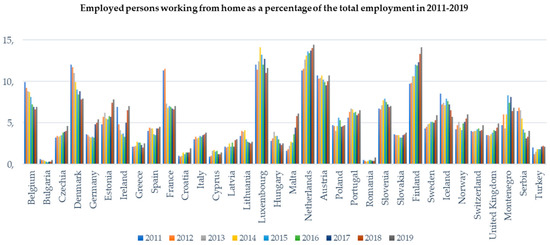
Optimizing Home Workspaces: The Importance of Telecommuting Ergonomics Insurance
Remote work has become a norm in today’s professional landscape, bringing with it the challenge of ensuring ergonomically sound home offices. As businesses prioritize employee well-being, Telecommuting Ergonomics Insurance emerges as a valuable resource. This article delves into the significance of insurance in promoting healthy and ergonomic telecommuting environments.
The Rise of Telecommuting and Ergonomic Challenges
The shift to remote work has numerous advantages, but it also introduces ergonomic challenges. Home office setups vary, and without proper guidance, employees may develop musculoskeletal issues due to poor ergonomics. From uncomfortable chairs to non-adjustable desks, these issues can impact productivity and employee well-being.
Understanding Telecommuting Ergonomics Insurance
Telecommuting Ergonomics Insurance is designed to address the specific ergonomic risks associated with remote work environments. This insurance provides coverage for a range of scenarios, including injuries related to poor ergonomics, costs associated with ergonomic assessments, and financial assistance for necessary ergonomic equipment.
Coverage Scope: From Chairs to Monitors
One of the strengths of Telecommuting Ergonomics Insurance lies in its comprehensive coverage. It extends beyond traditional health insurance by specifically addressing ergonomic needs. This includes coverage for ergonomic furniture, accessories, and even coverage for virtual ergonomic assessments to ensure employees have a well-equipped and comfortable workspace.
Promoting Employee Well-Being
Employee well-being is a priority for forward-thinking companies, and promoting healthy workspaces at home is an extension of this commitment. Telecommuting Ergonomics Insurance contributes to this goal by providing the resources necessary for employees to create ergonomic home offices. This, in turn, supports overall health and job satisfaction.
Addressing the Impact on Productivity
Ergonomic discomfort can lead to decreased productivity and increased absenteeism. Telecommuting Ergonomics Insurance recognizes the potential impact poor ergonomics can have on an employee’s ability to work effectively. By addressing these concerns, the insurance helps maintain a productive remote workforce.
The Role of Ergonomic Assessments
One key aspect of Telecommuting Ergonomics Insurance is its support for ergonomic assessments. Trained professionals can evaluate an employee’s home workspace virtually and recommend adjustments or equipment to improve ergonomics. The insurance covers the costs associated with these assessments, ensuring employees receive expert guidance.
Proactive Measures and Employee Education
Beyond insurance coverage, a holistic approach involves proactive measures and employee education. Telecommuting Ergonomics Insurance providers often offer resources and educational materials to help employees set up ergonomically sound home offices. This proactive approach fosters a culture of self-care and prevention.
Tailoring Coverage to Individual Needs
Recognizing that every employee’s home office setup is unique, Telecommuting Ergonomics Insurance allows for a degree of customization. Employees can tailor their coverage to address specific ergonomic needs, whether it’s investing in an ergonomic chair, an adjustable desk, or accessories like keyboard and mouse setups.
Supporting Hybrid Work Models
As the future of work embraces hybrid models, where employees split their time between remote and in-office work, Telecommuting Ergonomics Insurance remains relevant. It adapts to the changing dynamics of work arrangements, providing ongoing support for employees irrespective of their location.
The Business Case for Ergonomics Insurance
From a business perspective, investing in Telecommuting Ergonomics Insurance makes sound financial sense. By preventing ergonomic-related health issues, businesses can reduce healthcare costs, decrease absenteeism, and enhance overall employee satisfaction. It aligns with a proactive approach to employee well-being that benefits both individuals and the organization.
To learn more about the importance of Telecommuting Ergonomics Insurance in promoting healthy remote work environments, visit Telecommuting Ergonomics Insurance for comprehensive information and solutions.



